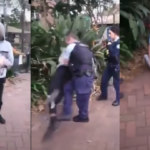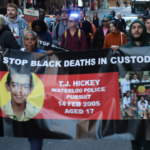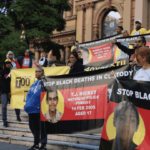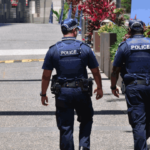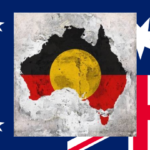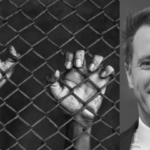Radio Host’s Outrage at Acknowledgement of Country Deflects from the Real Issues
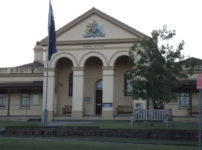
Aboriginal and Torres Strait Islander people can offer an Acknowledgement of Country to any person at the beginning of a meeting, speech, event, or other gathering to recognise the traditional owners of the land and act as a positive step towards reconciliation.
The Acknowledgement has no specific wording, but a suggested form is as follows:
“I’d like to begin by acknowledging the Traditional Owners of the land we meet today. I would also like to pay my respects to Elders past and present.”
While the Acknowledgment has overwhelmingly been seen as a positive, respectful, and unifying gesture, the mainstream media recently saw fit to misrepresent the situation and launch an outcry when Judge Penelope Wass accepted an Indigenous teenager’s offer to give the Acknowledgment during his sentencing proceedings.
The Case
The 17-year-old pleaded guilty in Taree District Court last month to breaking and entering the homes of a 92-year-old and 88-year-old woman. He also pleaded guilty to sexually touching one of the women.
The offences are undeniably serious and left the elderly women traumatised.
The teenager had been remanded in custody and, from the dock of the court, offered to Acknowledge the country before speaking.
The Media Spin
In the face of the facts, 2GB breakfast show host Ben Fordham expressed outrage that a judge would offer a person charged with such serious offences the opportunity to give a Welcome to Country, which, unlike an Acknowledgement, is given to welcome visitors to traditional lands.
The host told his listeners:
“The idea that a prisoner in the dock would be elevated to a de facto officer of the court and perform a ceremony on behalf of the court is not something that I’ve ever heard of and seems to me to be entirely inappropriate.
“It’s a privilege to perform something like that. It should not be offered to someone who is a criminal who’s pleaded guilty and is about to be sentenced — and then to top it all off at the end, the judge says “look if you’d like to come back and do it again in the future.”
Mr Fordham’s divisive mischaracterisation of the situation is just another example of the mainstream media attempting to deflect from real issues at play in the criminal justice system and broader society – including the fact that systemic racism places vulnerable youths and First Nations peoples generally – at an enormous disadvantage when it comes to realising opportunity, preferring to twist and misrepresent a situation to advance a narrative that Indigenous people are somehow given preferential treatment to the disadvantage of everyone else.
The effect of such sensationalised, inaccurate deflection is to demonise further people who are already at a great disadvantage in the existing paradigm both socially and economically, and especially in the criminal justice system, further stigmatising and alienating people who have experienced systemic racism for far too long.
The Real Issues
Indeed, the real issue faced by First Nations people since occupation of Australian lands has been systemic racism, the effects of which continue to the present day.
Ever since European settlers arrived in Australia, they have exploited, excluded, and discriminated against First Nations peoples on their rightful land – leading to deep social, economic and indeed health issues, putting the first land owners – who as the High Court found in Mabo v The Queen were unlawfully dispossessed by way of a false proclamation of terra nullius – and continue to hold title to certain lands to the present day, and indeed will always have a deep cultural connection to traditional lands.
And while radio hosts and the mainstream media continue to select and misrepresent situations, pushing a narrative that First Nations people are somehow treated favourable and have some sort of ‘advantage’ over the general population, the overwhelming consensus and indeed research and statistics tell a very different story.
A Face Up to Racism survey in 2015 showed that almost 80% of respondents agreed that prejudice is prevalent in Australia, with 86% of respondents in the Geographies of Racism survey confirming the same thought.
A plethora of research has established that racism against First Nations people is prevalent across all facets of everyday life, such as in the workplace, accommodation, legal system, educational institutions, retail stores, cafes, restaurants, public transport, and even online.
A study was conducted in 2013 that noted 72% of white people were treated better on a public bus compared to just 36% of black people, highlighting the byproduct of systemic racism that people of colour did nothing to receive this type of subpar treatment.
Indeed, human rights violations that First Nations peoples have had to go through are not only inhumane, but they are cruel, unjust, and immoral. Indigenous peoples have to live with fewer resources, fewer options, no say in any decision-making, and discriminatory legislation that makes it almost impossible to better their communities.
Despite the facade that there are initiatives created to help Indigenous communities, these ‘mega projects’ are actually harmful, as they do not ask for any input in terms of decision-making — leading to an even bigger gap in terms of access to resources, healthcare, justice, and education.
Other examples of systemic racism in practice currently in the country include:
- First Nations peoples receiving unfair treatment and sentencing outcomes in the criminal justice system
- As of 2017, Aboriginal and Torres Strait Islander peoples made up 28% of all individuals in the prison population, while compromising just 2% of the total population.
- Unfair police treatment
- Aboriginal and Torres Strait Islander peoples were overrepresented in police force incidents from 2018-2022, compiling 45% of all force incidents.
- Unfair lending practices for home ownership or renting conditions
- indigenous Australians have less access to affordable and secure housing, along with higher rates of overcrowding in remote areas.
- Inability to secure living wage jobs
- If Indigenous Australians can secure a job, 50% of Aboriginal and Torres Strait Islander peoples reported experiencing discrimination in the workplace.
- Lack of representation of First Nations cultures in educational institutions
- Only 68% of Indigenous young persons between 20-24 years old had completed basic 12-year education vs. 91% of non-Indigenous Australians.
- Overrepresentation of First Nations children in the juvenile justice system
- 63% of children aged 10-17 in detention were First Nations, despite only comprising 5.7% of the population
- Australia’s constitutional rights to make laws regarding Aboriginal and Torres Strait Islander Peoples, and
- Aboriginal and Torres Strait Islander peoples have had no role in writing the Constitution
- Australia’s history of dispossession, extradition, extraction, discrimination, and assimilation.
A Broken Legal System
Aboriginal and Torres Strait Islander peoples have long been the victims of discrimination and racism within their own country. For a real change to occur, for true reconciliation to take place between Indigenous and non-Indigenous peoples, the legislation and legal system need to be reformed urgently and significantly.
The fact that a barrister can use discriminatory practices is unacceptable. In most instances, Aboriginal individuals are discriminated against in society and in a court of law. In this case, it was the opposite. But, the fact remains that discrimination in the Australian Court system, and the country as a whole, cannot be tolerated.
Governing bodies that police societies and correctional systems must be held accountable when it comes to systemic racism, as discriminatory tendencies are extremely present in the chambers of parliament. NSW Greens MLC, Shoebridge, even called out the rampant bias in the NSW government, noting that despite tens of thousands of residents calling for much-needed change, the government chose to focus on smaller matters that ignored the cries for help.
Establishing an independent investigative body is just one step that the government can take, which will help the First Nations people — but much more has to be done, and done quickly, to curb systemic racism and prevent an entire ethnic group from essentially being filtered out of their own home.
Part of the Problem
So while mainstream media personalities such as Ben Fordham who enjoy ‘white man’s privilege’ and cry over their perceived disadvantage, making mountains out of molehills, the fact of the matter is they are part of the reason racism remains at epidemic levels in our nation, and vulnerable groups such as First Nations people remain profoundly disadvantaged.


